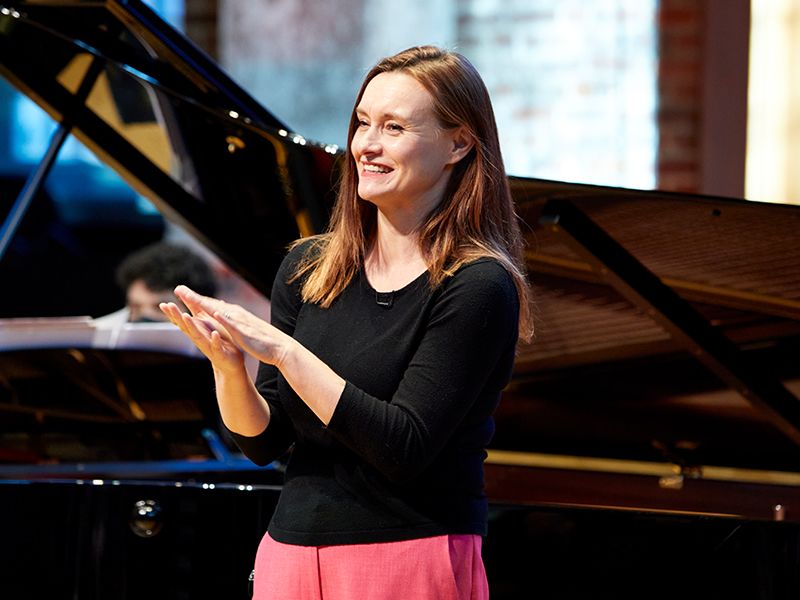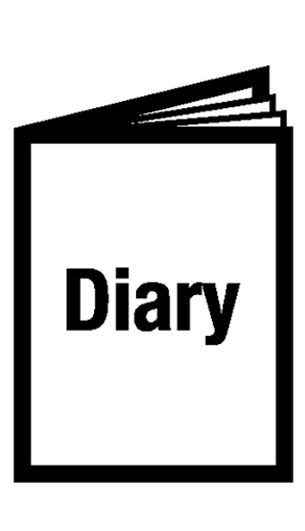LSO Discovery
Relaxed Friday Lunchtime Concert
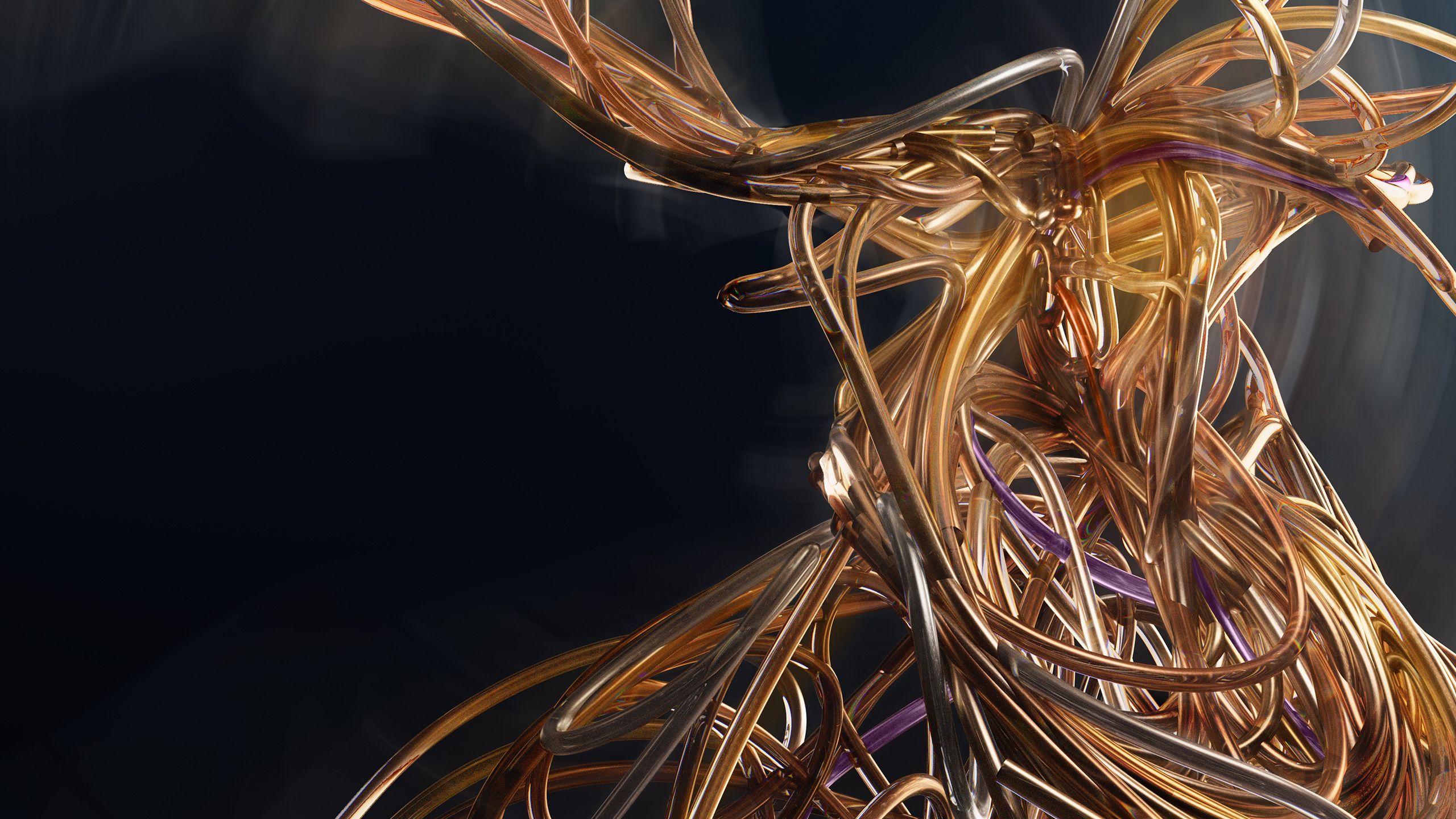

TODAY'S CONCERT
Johann Sebastian Bach Badinerie from Orchestral Suite No 2 in B minor
Claude Debussy Syrinx
Turlough O’Carolan arr Thomas Quigley Concerto
Christoph Willibald Gluck arr Edgar Hunt Dance of the Blessed Spirits from Orfeo ed Euridice
Benjamin Godard Waltz from Trois pièces brèves
Patricia Moynihan flute
Sophia Rahman piano
Rachel Leach presenter
Angie Newman BSL interpreter
USING YOUR DIGITAL PROGRAMME
- Connect to the free hawksmoor WiFi network.
- Navigate using the menu icon (≡) at the top of the screen.
- Please set your phone to silent and don't use other apps during the music.
Johann Sebastian Bach (1685 to 1750)
Orchestral Suite No 2 in B minor
✒️ 1738 | ⏰2 minutes

7 Badinerie
Johann Sebastian Bach is now regarded as the composer who influenced all who followed him. However, in his lifetime, he was merely a jobbing musician moving from job to job as music master to a series of wealthy families. In this role he had to provide music for the weekly church services, for entertainment, and for celebration, and so he churned out a huge amount of music. Badinerie was originally part of a seven-movement suite. Badinerie is another word for Scherzo: a short, lively, and fun piece. Fittingly, the word actually translates as ‘banter’.
Note by Rachel Leach
Claude Debussy (1862 to 1918)
Syrinx
✒️ 1913 | ⏰3 minutes

Claude Debussy is arguably France’s greatest ever composer. He reshaped the sound and structure of music at the end of the Romantic period and was incredibly influential on later composers. While he was described as an 'Impressionist', Debussy hated the term. He stated that he was merely trying to do something different but the ‘lazy art critics’ were at a loss for anything else to say. Syrinx was the first solo flute piece of the 20th century and in its sound world, the use of free interpretation and emotion was pioneering. It is inspired by a story from Greek mythology. The nymph Syrinx runs to the river to escape the amorous attention of the Greek god Pan. Transformed there into water reeds, she makes a haunting sound when Pan's frustrated breath blows across her. Pan then cuts the reeds and makes panpipes, a haunting flute-like instrument.
Note by Rachel Leach
Turlough O’Carolan (1670 to 1738) arr Thomas Quigley
Concerto
✒️ unknown | ⏰3 minutes

Blind celtic harpist, composer, and singer Turlough O’Carolan wrote many, many tunes that we now think of as ‘traditional’ and in doing so, he invented the ‘Irish’ sound. Born to a blacksmith father in County Meath, he was educated by a wealthy family who encouraged this interest in poetry. However, he became blind aged 18 after a bout of smallpox and ploughed all his energy into learning the harp. At 21 O’Carolan set off with his harp and horse to travel Ireland writing songs to pay his way. He did this for 50 years and wrote over 200 songs, many using the traditional Irish dialect that he spoke with. His name is kept alive and honoured each year with the Annual O’Carolan Harp Festival and Summer School.
Note by Rachel Leach
Christoph Willibald Gluck (1714 to 1787) arr Edgar Hunt
Dance of the Blessed Spirits from Orfeo ed Euridice
✒️ 1762 | ⏰7 minutes

Christoph Willibald Gluck was an extremely famous and important composer of opera who radically changed the form and made it more accessible to new audiences. In short, he increased the drama, cut the length and simplified the storytelling. His most famous work is Orfeo ed Eurydice which tells a very sad tale. Orfeo is a musician with great powers. When his wife dies he must use his music to lead her out of hell and back to life but he must not look at her as he does so. He begins playing and Eurydice follows but after a while he is unable to continue without glancing back at her beauty and so she is lost forever. Dance of the Blessed Spirits describes Orfeo’s sadness as he stands surrounded by earth and nature but without his great love.
Note by Rachel Leach
Benjamin Godard (1849 to 1895)
Trois pièces brèves
✒️ 1889 | ⏰5 minutes

7 Valse (Waltz)
French composer, violinist, and teacher Benjamin Godard wrote eight operas, five symphonies, over 100 songs and much chamber music before his tragic death from tuberculosis at just 45 years old. He was born in Paris in 1849, studied at the Paris Conservatoire and then became professor at the institution. His long list of compositions did make him famous and rich but the quality of his output was uneven and much of it is now sadly lost. This dazzling waltz is from 1889. It offers many opportunities for the flutist to really show off but also listen out for several moments when the traditional ‘um-pa-pa’ waltz rhythm in the piano is deliberately knocked off-course. It may sound like it’s going wrong but it’s not – it’s just really, really clever!
Note by Rachel Leach
About the Artists

Patricia Moynihan
flute
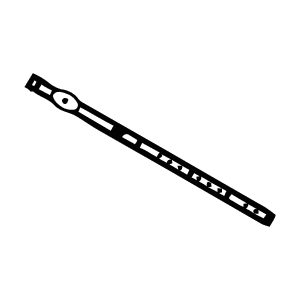
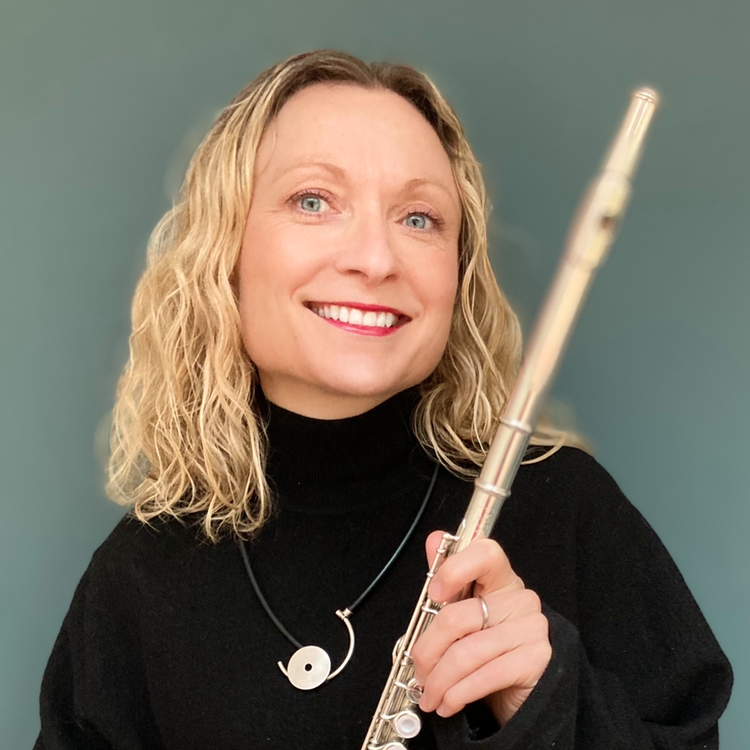
Patricia Moynihan (Trish) was born in Cork, Ireland. She studied at the Cork School of Music before moving to London to study at the Guildhall School of Music and Drama. Whilst there she won the prestigious Lombard and Ulster bursary. Patricia now enjoys a very busy freelance career in London. She plays regularly with the London Symphony Orchestra, Royal Philharmonic Orchestra, Philharmonia, BBC Symphony Orchestra and Britten Sinfonia. She also does a lot of session work recording film and TV scores. Patricia regularly performs concerts all over the world with five of her siblings. Their concerts are a mixture of folk and classical music with many of their own compositions and arrangements.

Sophia Rahman
piano
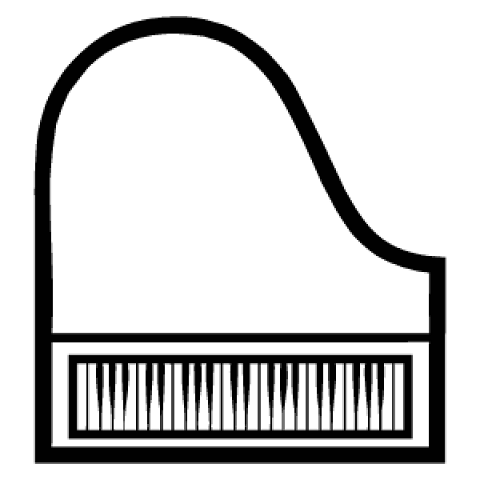
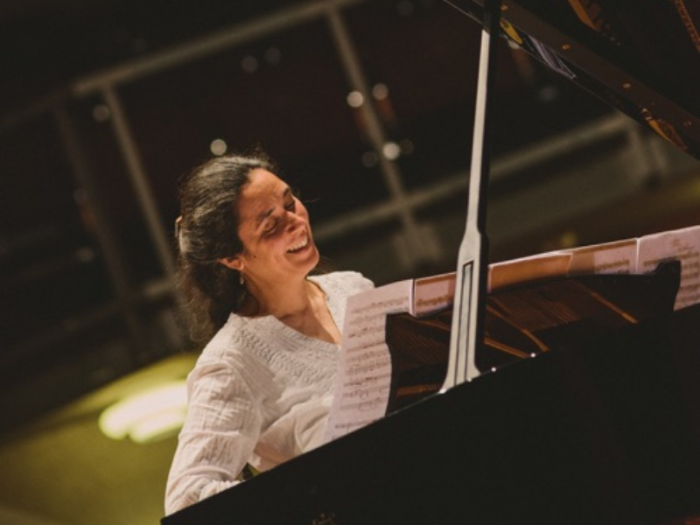
Sophia Rahman has recorded piano concertos with BBC National Orchestra of Wales, the Scottish Ensemble and has made around forty chamber music discs.
Sophia has appeared in recital with musicians such as cellist Steven Isserlis and other distinguished performers including tenor Mark Padmore and violinist/violist and conductor Andres Kaljuste. She is the Artistic Director of Whittington Festival in Shropshire, UK.
Sophia has coached at top Scandinavian music schools and designed a course for young Estonians at the Arvo Pärt Centre, where she regularly appears as a recitalist. Also known for her work as a class pianist, Sophia has played for Steven Isserlis’ class at IMS Prussia Cove since 2011. Her interest in this field began as a class pianist for the legendary William Pleeth at the Britten-Pears School.
After early tuition with Antonietta Notariello, Sophia studied at the Yehudi Menuhin School under Peter Norris, with guidance from Vlado Perlemuter and Louis Kentner.
She took a first-class honours degree in English from King’s College London and continued her studies at the Royal Academy of Music with Alexander Kelly and Malcolm Martineau, winning the Royal Overseas League’s collaborative and chamber music piano prizes in consecutive years.

Rachel Leach
presenter
Rachel Leach was born in Sheffield. She studied composition, and her music has been recorded by NMC and published by Faber. She has won several awards including, with English Touring Opera (ETO), the RPS award for best education project 2009 for One Day, Two Dawns.
Rachel has worked within the education departments of most of the UK’s orchestras and opera companies. The majority of her work is for the London Symphony Orchestra and the London Philharmonic Orchestra. Rachel has written well over 20 pieces for LSO Discovery and 15 community operas, including seven for ETO.
Increasingly in demand as a concert presenter, as well as presenting the LSO Discovery Free Friday Lunchtime Concert series, she regularly presents children’s concerts and pre-concert events for the LSO, LPO, Philharmonia Orchestra, Scottish Chamber Orchestra, Royal College of Music and Royal Northern Sinfonia.
Angie Newman
BSL interpreter
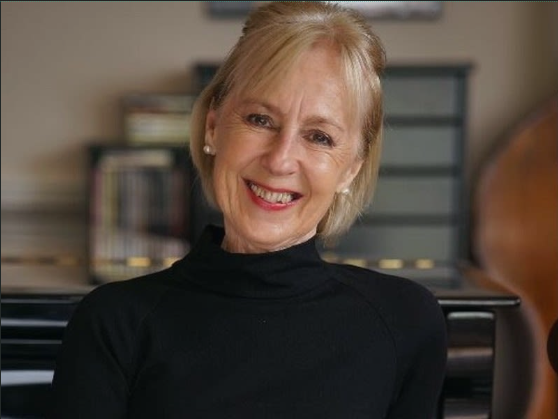
Angie Newman has worked extensively across music and deaf education for many years. Her knowledge and expertise in these areas, combined with her skills as both a British Sign Language interpreter and a musician, enable her to make music more accessible to young deaf people and adults, bridging the worlds of deafness and music, something she feels passionate about.
She has worked for six successive years with the BBC interpreting family Proms, including CBeebies Proms. She works with a variety of leading orchestras in the UK, including the London Symphony Orchestra, London Philharmonic Orchestra, Philharmonia Orchestra and many others, interpreting for their education and community programmes. Angie loves to relax by walking, cycling, playing the piano and violin, and practising yoga.

Your Feedback

Thank you for joining us for this Relaxed Lunchtime Performance.
Please let us know what you thought of the concert by completing a short survey. We would love to hear your thoughts.
Next Friday Lunchtime Concerts

The next Relaxed concert takes place on Friday 23 February 2024 at 12.30pm, live and online.
Naoko Keatley (violin) and Mizuho Ueyama (viola) will play duos by composers including Wolfgang Amadeus Mozart and George Frideric Handel.


